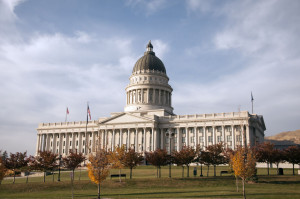Utah legislative session 2020
The 2020 Utah legislative session is just around the corner with the session opening on January 27th. By way of background, the Utah Legislature generally begins its annual 45-day session on the fourth Monday of January each year. As a bicameral body, it is composed of 75 Representatives who make up the Utah House of Representatives and a Utah State Senate with 29 Utah State Senators. The 2020 session will conclude on March 12, 2020. 
According to Ballotpedia.org, “Utah has a Republican state government trifecta. A trifecta exists when one political party simultaneously holds the governor’s office and majorities in both state legislative chambers. As of January 13, 2020, there are 21 Republican trifectas, 15 Democratic trifectas, and 14 divided governments where neither party holds trifecta control.” (www.ballotpedia.org.)
Some form of the Utah Legislature has been running since 1850 when Utah was established as a territory by an act of the US congress. At that point, a territorial government was able to take shape. The first official Utah Legislative session took place in January 1896 on the heels of Utah being granted statehood.
We follow the legislative session closely and will be bringing you updated information about issues relating to special and local Utah districts on Facebook and our website as the session moves forward. Find a list of important legislative session dates here and be sure to check our website regularly for updates and for resources to help you stay involved in the legislative process.
It is most important to stay engaged and involved. We encourage your involvement by visiting with legislators who represent your citizens and your district, helping them to know of and better understand your district, what services your district provides, and respond to any questions or concerns that they may have.
We invite, encourage and welcome the involvement of all districts in the legislative process. The goal of the UASD is to represent the interests of districts by informing legislators of your needs and interests, and by positively influencing the legislative process on behalf of districts and the citizens of the State of Utah whom we serve.






